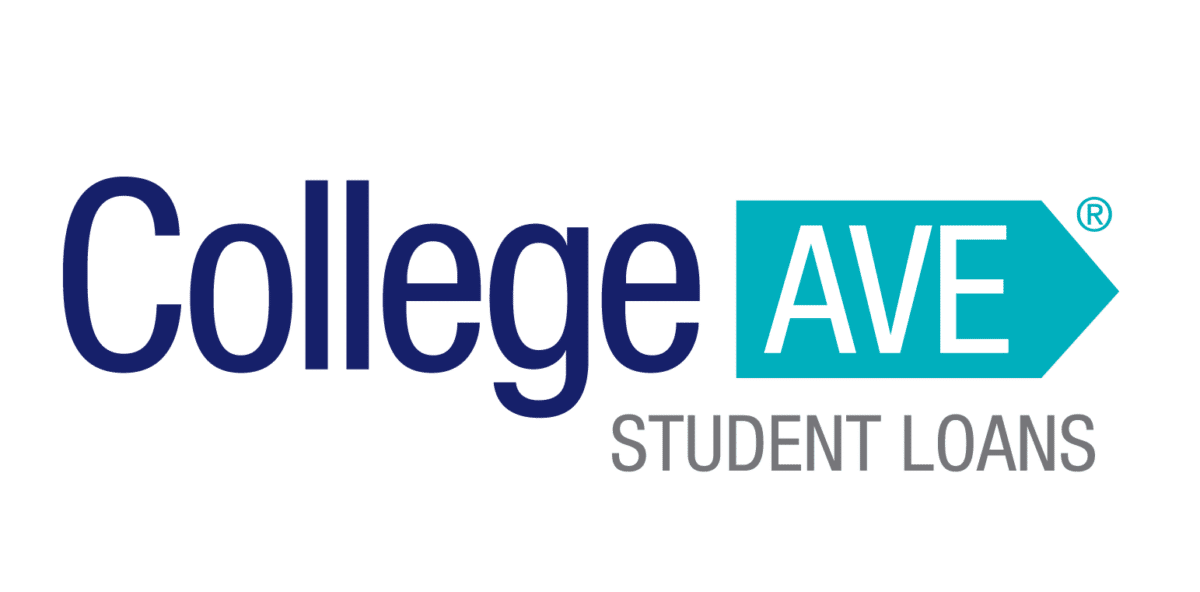
As a parent, you want to help your child as much as you can with their education. College costs can be high, with the average cost of college being $35,720 per year, according to EducationData.org. So you might wonder what your options are to help out with costs. Although your child can take out their own student loans, you might be thinking about borrowing parent loans on behalf of your child.
Read on to learn about the best private parent student loans.
1. College Ave
College Ave offers different educational loans from student loan refinancing to private parent student loans. It gives you up to $2,500 of the loan upfront to manage college expenses like books, electronics, etc.
- Interest: Fixed or variable.
- Fees: No origination fees.
- Loan amounts: Minimum loan amount $1,000, maximum loan is up to the cost of attendance
- Repayment terms: 5 to 15 years.
- In-school repayment options: Interest only, interest plus payment, or full payment.
- Benefits: 11 different repayment term options, extra funds for educational expenses can be sent to you, 0.25% autopay interest rate deduction.
2. SoFi Parent Loan
SoFi is most well-known as a student loan refinancing lender, but it also offers private student loans for parents, among other financial products.
- Interest: Fixed or variable.
- Fees: None. No origination or late fees, prepayment penalties, or insufficient funds fees.
- Loan amounts: Minimum loan amount $1,000, maximum loan amount up to the cost of attendance.
- Repayment terms: 5, 10, or 15 years.
- In-school repayment options: Interest only or full payments.
- Benefits: Access to member benefits like financial support and networking events, no fees and an autopay discount is available.
3. Education Loan Finance Parent Loan
Student loan refinancing through Education Loan Finance (ELFI) isn’t the only option families have to fund their student’s education. The lender also offers a private student loan option for parents. To qualify, borrowers (or their cosigner) must have a credit score of at least 680 or more.
- Interest: Fixed or variable.
- Fees: No origination fees, no prepayment penalties, and no application fees.
- Loan amounts: Minimum loan amount $10,000, maximum loan amount is up to the cost of attendance.
- Repayment terms: 5, 7 or 10 years.
- In-school repayment options: Interest only, fixed payments of $25, in-school deferment, or full payments.
- Benefits: Good customer reviews, autopay discount available and no fees.
4. Citizens Parent Loan
Citizens offers various financial products including student loan refinancing as well as parent student loans.
- Interest: Fixed or variable.
- Fees: No origination fees, no application fees, or disbursement fees.
- Loan amounts: Minimum loan amount $1,000, maximum loan is up to $350,000.
- Repayment terms: 5 or 10 years.
- In-school repayment options: Interest only or full payments.
- Benefits: No fees, autopay and loyalty discounts available, high loan amounts available if needed.
Reviewing best private parent student loans
When it comes to private parent student loans, you have many different options to choose from. Some of the best private parent student loans come from College Ave and Sallie Mae. These lenders offer various repayment terms, added benefits and are well-known in the space.
Of course, you want to find the right parent loan for your situation and your child’s needs. Below we’ve outlined what each lender is best for.
| Lender | Best for… |
|---|---|
| College Ave | Flexible repayment terms |
| SoFi | Added perks |
| ELFI | Choice of monthly payment |
| Citizens | High loan amounts |
Parent loan vs. cosigning a loan
When taking out a parent loan, you’re legally responsible for the loan, even though the loan goes toward your child’s education. An alternative to consider is acting as a cosigner for your child’s private loan.
In this scenario, they’re the primary borrower of the loan and the agreement is in their name. As a cosigner, you’d still have a legal responsibility to pay the loan, if your child doesn’t repay it. But the onus is on your child to repay the loan.
Getting a parent loan
Pros:
- You get to choose from a variety of lenders
- Get added perks as the primary borrower
- Select repayment terms that work for you
- Have more autonomy over the loan
Cons:
- You’re solely responsible for the loan
- Can be expensive and distract from other financial priorities, like retirement
Cosigning your child’s loan
Pros:
- Helps your child’s chances of approval for financing
- Uses your credit to get them better rates
- Your child can establish and build credit through repayment
Cons:
- If your child stops paying, you’re liable for the loan
- It might hurt your credit, if they miss payments
It’s important to sit down with your child and discuss repayment options. Getting a Parent Loan assumes they’re not formally a part of the repayment process, but if you want them to be, you’ll need to have a candid conversation with them.
Acting as a cosigner might be better as the loan is in their name and their responsibility. It might also act as an incentive to stay in school. However, borrowing parent loans or cosigning on a student loan can hurt your credit if things go downhill.
Parent PLUS Loan vs. private loans
Aside from the private parent student loans listed above, there’s also the Federal Parent PLUS Loan option through the U.S. Department of Education. It provides more benefits and safety nets; for example, you could potentially get an on income-driven repayment plan (IDR) to lower monthly payments.
If you get on an IDR plan, you might be eligible for student loan forgiveness. However, this strategy requires a workaround where you’d need to consolidate Parent PLUS Loans into a Direct Consolidation Loan first.
When comparing a Parent PLUS Loan vs. private loan, it’s important to note that you’ll get more flexibility and repayment options under a Parent PLUS Loan. Consider opting for federal loans first, whenever possible.
Related: How to Strategically Choose Which Parent Should Apply for Parent PLUS Loans
The bottom line
Taking out parent loans on behalf of your child is a big deal. It’s important to look at your credit and financial situation to see if it’s a step you can reasonably afford.
If not, acting as a cosigner might be a better fit. Regardless of which option you choose, make sure you understand the risks and requirements involved. The goal is to help your child without hurting finances in the process.
| Lender Name | Lender | Offer | Learn more |
|---|---|---|---|
| Sallie Mae |

|
Competitive interest rates.
|
Fixed 4.50 - 15.69%
Variable 6.37 - 16.78%
|
| Earnest |

|
Check eligibility in two minutes.
|
Fixed 4.67 - 16.15%
Variable 5.87 - 18.51%
|
| Ascent |

|
Large autopay discounts.
|
Fixed 4.09 - 14.89%
Variable 6.22 - 15.20%
|
| College Ave |

|
Flexible repayment options.
|
Fixed 4.07 - 15.48%
Variable 5.59 - 16.69%
|
